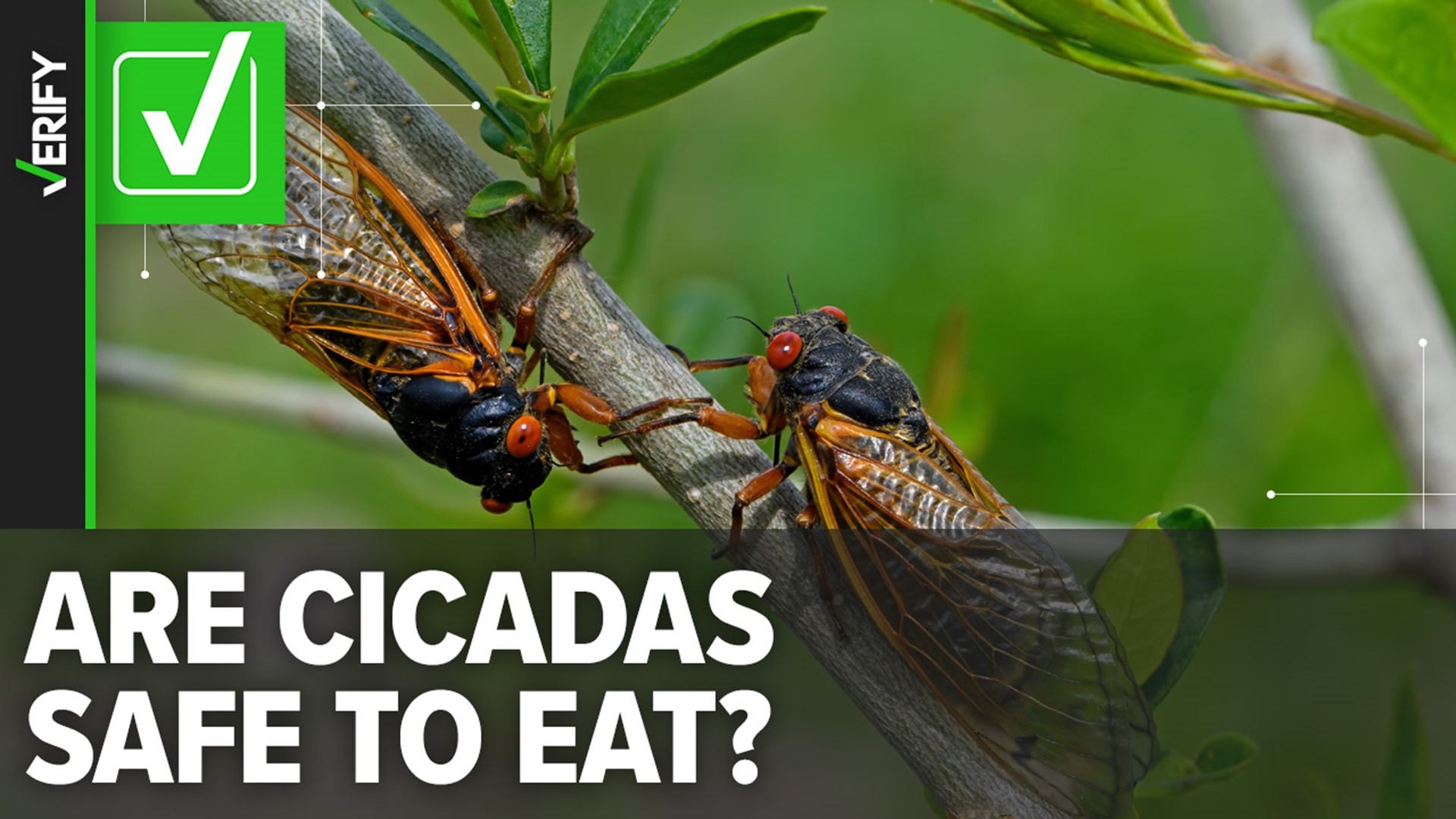NORFOLK, Va. — Those creepy critters may have some of us in disgust, but our pets and other animals may think otherwise.
Much of the South and parts of the Midwest are dealing with two broods of periodical cicadas: the 13-year Brood XIX and 17-year Brood XIII. With cicada season underway, many people on social media are talking about the insects' edibility, both for themselves and their dogs and cats.
Entomologists say cicadas don't bite or sting, and technically are safe to eat (although those with a shellfish allergy will want to avoid them as they share a family relationship with shrimp and lobsters). With so many of them emerging all at once, other animals may suddenly find cicadas to be an all-you-can-eat buffet.
“Dogs especially seem to like the taste of these things, so much that they will eat enough to where they will come inside and throw up," said Dave Shetlar, a professor of entomology at Ohio State University.
So while they are safe to eat, you'll want to keep an eye on your pet and make sure any of it is done in moderation. Overeating cicadas could cause your dog to get sick or become a choking hazard, according to the FDA Center for Veterinary Medicine.
There are also certain cicadas you'll want yourself and your pet to steer from: those infected with the Massospora cicadina fungus. An infected cicada will have the back half of its body replaced with a yellow, powdery "plug." These are sometimes known as "zombie cicadas".
"Those are not palatable for human or animal consumption as the fungus produces a number of hallucinogenic compounds (psilocybin, amphetamine) as well as a bunch of other compounds that are not good for you," said Floyd Shockley with the National Museum of Natural History. "It also makes the cicada taste bitter. The fungus wants the host cicada to infect as many cicadas as possible, and so it discourages predators from eating it until it has spread the spores as widely as possible by making it taste terrible."

